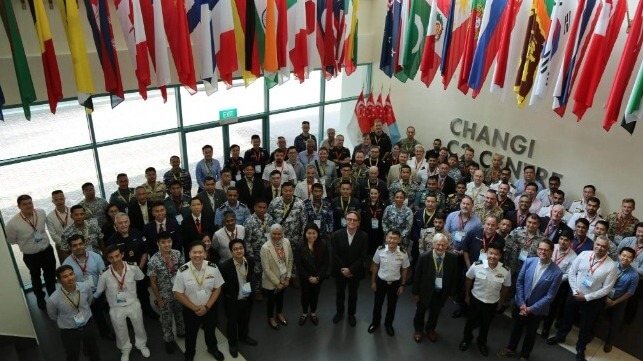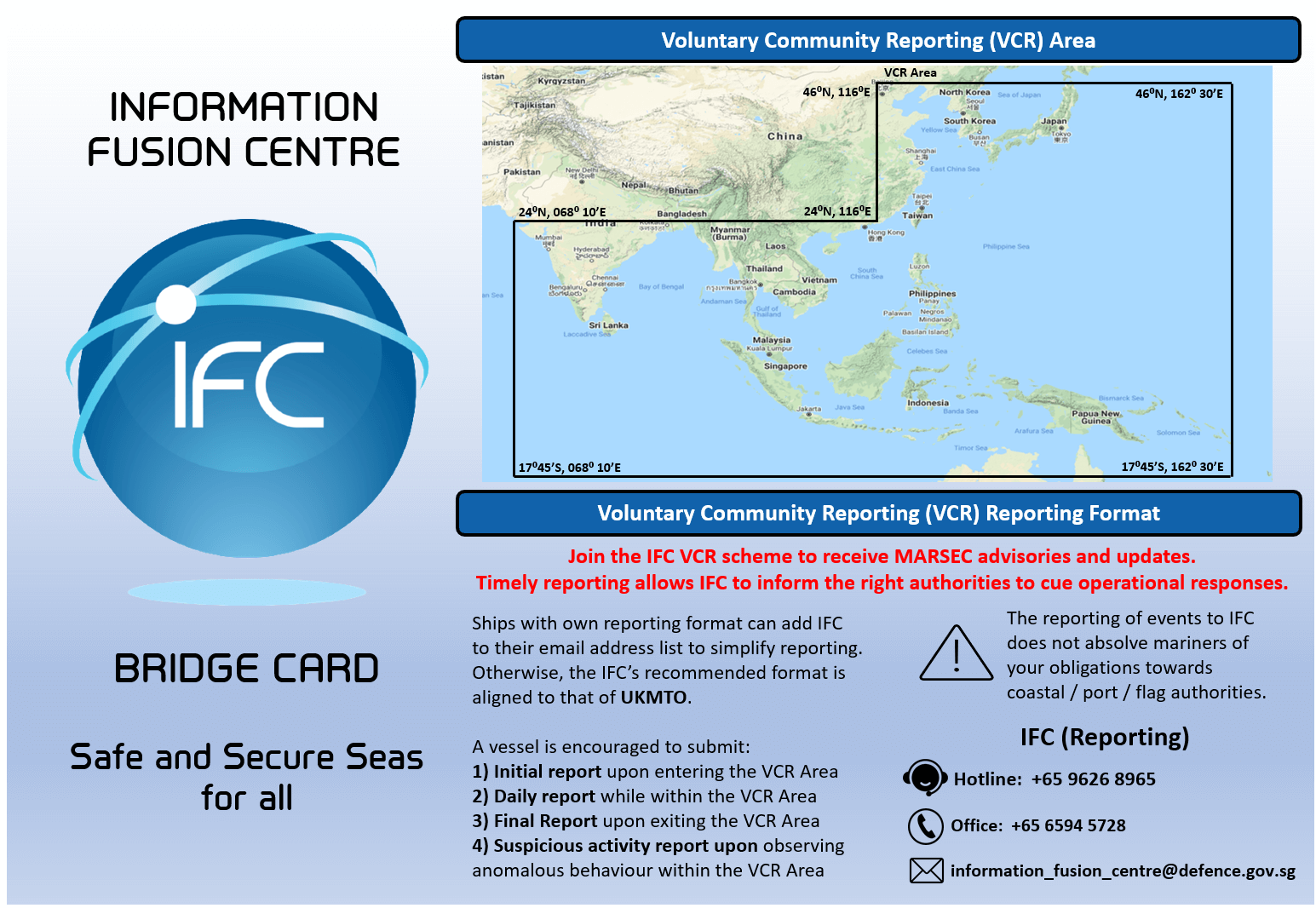The Singapore Information Fusion Centre's Role in Maritime Security

The IFC was established in 2009 to collate relevant commercial shipping and maritime information to increase MARSEC awareness. Through the strong support of our partners, the IFC has established itself as a regional maritime security info-sharing hub, providing actionable information to cue operational responses for MARSEC incidents, including theft, robbery, and piracy at sea, maritime terrorism, maritime incidents, contraband smuggling, illegal fishing, irregular human migration, environment security, and maritime cyber security.
The IFC has a robust network and linkages with 100 partners from 43 countries, which include navies, coastguards, maritime agencies, and influential shipping associations and companies enabling us to exchange MARSEC information across different regions. When IFC receives information on a MARSEC threat or incident, we will immediately share the information with our International Liaison Officers (ILOs) who are responsible to relay the information back to their operation centers and cue timely operational responses from the relevant authorities. The facilitation by the ILOs alleviate uncertainty or delay caused by miscommunication, which is common in Asia where there are many different languages and practices.
Over the years, the IFC contributed to a series of operational successes through strong cooperation with our MARSEC partners; to this end, the contributions of the shipping community cannot be understated. It is challenging for navies and law enforcement agencies to maintain maritime safety and security in the vast seas given limited assets. With shipping companies and/or merchant ships out at sea taking a more active role and increasing vigilance, we create a “neighbourhood watch” to enhance overall awareness and deter would-be perpetrators more effectively as a community.
 The IFC Bridge Card includes the Voluntary Community Reporting (VCR) format for ships to report MARSEC incidents or suspicious activities to the IFC in a timely manner.
The IFC Bridge Card includes the Voluntary Community Reporting (VCR) format for ships to report MARSEC incidents or suspicious activities to the IFC in a timely manner.
That is why IFC initiated the Voluntary Community Reporting (VCR), a voluntary reporting scheme since 2010 for merchant ships to report any suspicious activities or MARSEC incidents in a timely manner. In return, the IFC will provide ships with updated MARSEC information and advisories when transiting in this region. Through our engagement efforts like the Shared Awareness Meetings, visits to shipping companies, and regular participation in company/ship security drills, we have established mutual trust with our shipping partners, who have also become more forthcoming to provide IFC with information or report when they observe suspicious activities at sea. Sometimes, partners also provide photographs and video clips of incidents; these are vital evidence for authorities to conduct follow-up actions.
The IFC also regularly conducts capacity building initiatives to promote cooperation amongst its partners. Recently, IFC conducted its 10th Regional MARSEC Practitioner Programme (RMPP) from 5-9 September, 2022 to enhance MARSEC awareness, forge friendships and trust while building professional knowledge and skills for the participants. The IFC brought together various maritime stakeholders from regional and extra-regional navies and coastguards, maritime agencies and the shipping community to understand how MARSEC agencies worked closely with one another, as well as with the shipping industry to combat MARSEC threats. Over 90 participants across 28 countries with different areas of expertise attended the 10th RMPP and exchanged diverse perspectives and insights which greatly contributed to the learning process. Through RMPP, IFC continues to foster strong linkages and build MARSEC awareness among its partners.
This article is sponsored by the IFC. For more information, please visit https://www.ifc.org.sg.
The opinions expressed herein are the author's and not necessarily those of The Maritime Executive.

